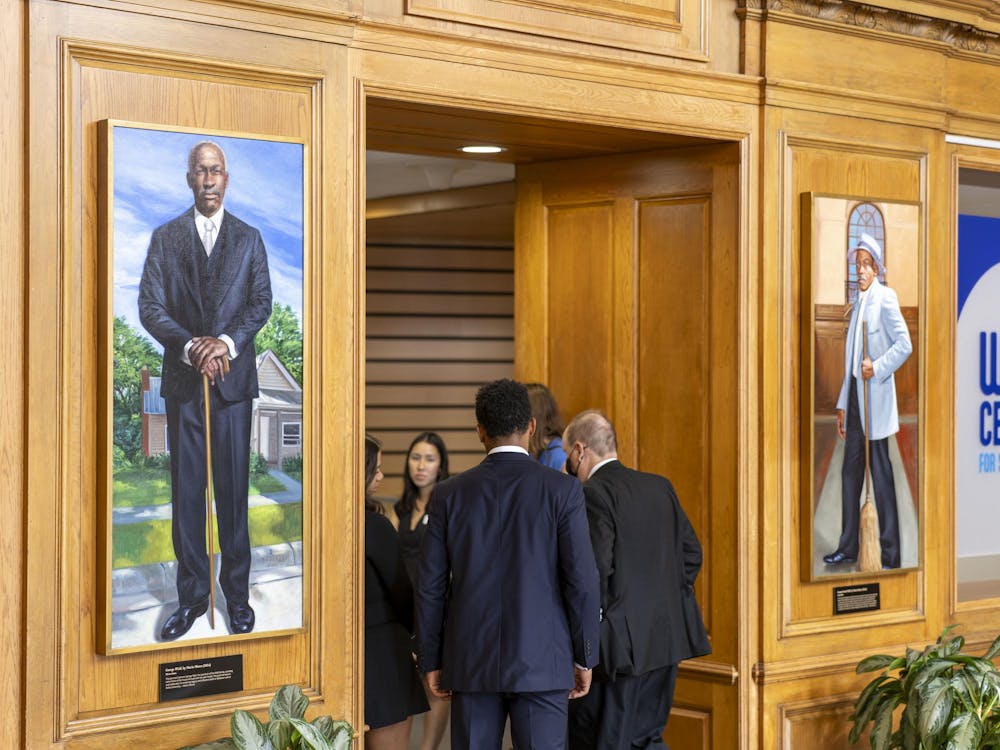Walltown Neighborhood Ministries, a collective of churches and partner organizations in the historically Black neighborhood of Walltown in Durham, is working to open a permanent food bank for community members after years of occupying temporary locations.
In 1996, five local churches came together to discuss how to “revitalize [the] declining neighborhood” and “alleviate problems associated with nagging poverty.” In the 28 years since, WNM has provided Walltown’s residents with assistance in the form of a food pantry, clothing and personal hygiene products for the homeless, and an Angel Tree program to provide children in need with Christmas presents.
The Duke Divinity School was one of the organization’s first partners, joining the effort in 1997. Two years later, the Divinity School contributed to the Walltown Families and Children Initiative, a faith-based service funded by The Duke Endowment.
Today, the food bank serves 150 families, offering roughly two to three weeks of food to those in need at the end of the month. Its timing is strategic — the end of the month is often when expenses like rent are due and money is tight, meaning families are more likely to run low on resources.
Currently, WNM’s food bank operates primarily out of the Trinity Presbyterian Church on Trinity Avenue. The service has lived there for almost three years, but volunteers say the building no longer meets their needs.
First, operating out of shared spaces meant that WNM had to schedule around church events. Further, the need to transport supplies such as tents and tables was hard on older volunteers.
Longtime WNM volunteer Desi Cooper explained that the service has moved locations three or four times in recent memory, each time having to relocate equipment necessary for its operations.
“In some cases, we have had to have electricians come in to put in different circuitry to provide electricity for the cooling devices — the freezers and refrigerators and things,” he said. “So having a permanent structure would give us a lot more stability, and it would cut down on some of the challenges of just trying to store what is needed.”
Sylvia Belcher, community outreach coordinator for WNM, described how a permanent location would make the service more efficient. Currently, food storage and distribution takes place in two different facilities due to space constraints. She contended that moving operations to one permanent location would streamline the process, thus “sav[ing] a lot of time and effort.”
She estimated that the food bank could support between 25 and 50 additional families, or around 250 to 300 people.
WNM’s new facility would be built on a donated plot of land next to St. John’s Missionary Baptist Church — one of the original founding churches. Estimated costs for the entire project range from $200,000 to $300,000.
WNM has already held multiple small fundraisers and is considering starting a GoFundMe page and hosting a gala at the beginning of 2025 to raise money for the project.
Pastor Robert Daniels, one of WNM’s founding members and the organization’s current president, said that roughly $50,000 to $60,000 had already been raised for the project, mostly in the form of donations from congregants and occasional grant funding.
Because WNM relies on donations and grants to support the food bank, funding shortages can affect the organization’s ability to meet its goal of assisting families.
“It's hard to look at people who have need[s] and we can't reach it — I mean basic things like food and water and shelter,” Belcher said. “… We try to meet their need[s] and encourage them and to show them that someone do[es] care and that someone do[es] understand.”
But volunteers are excited for the project and the possibility of expanding the scope of WNM’s community service mission.
“I’m hoping that those who can help us will have an open heart to help us do this work,” Daniels said. “With the economy as it is, in the sense that there are more poor people who are living with food scarcity, it’s just a grave need out there. We’d like to be a part of meeting those needs.”
Get The Chronicle straight to your inbox
Sign up for our weekly newsletter. Cancel at any time.

Madera Longstreet-Lipson is a Trinity sophomore and an associate news editor for the news department.

